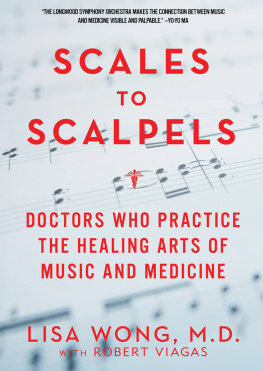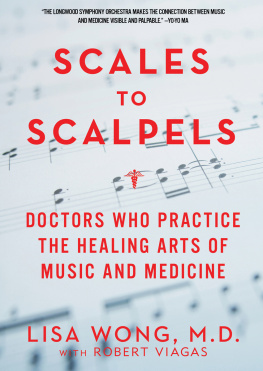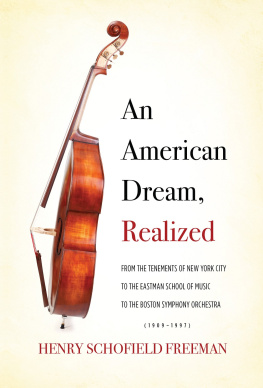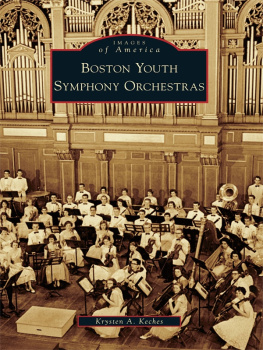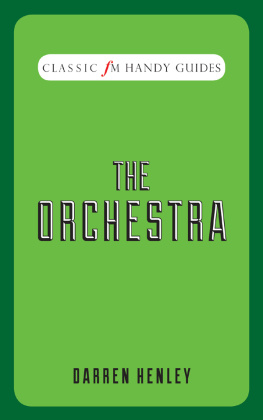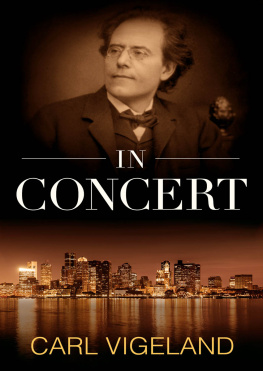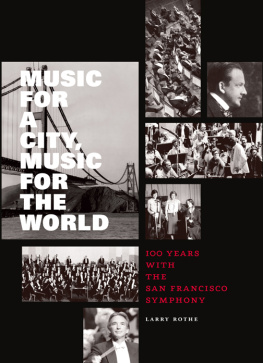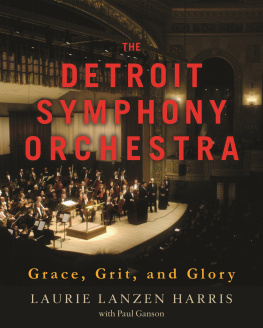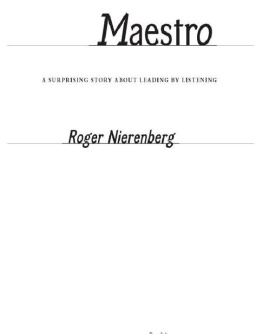SCALES
TO
SCALPELS

DOCTORS WHO PRACTICE THE HEALING
ARTS OF MUSIC AND MEDICINE
DR. LISA WONG
WITH ROBERT VIAGAS

PEGASUS BOOKS
NEW YORK
For the musicians and the audiences
of the Longwood Symphony Orchestra,
and to all medical musicians around the world who
are inspired by the guiding spirit and profound
example of Dr. Albert Schweitzer.
I am so grateful to my husband Lynn and my inspirational musical children, Jennifer and Christopher, for their warmth, encouragement and unbridled love. Additional thanks go to my extended family: to my parents who supported and encouraged me to pursue each of my passions; to my in-laws, who were my medical role models; and to my siblings whose playfulness and curiosity made music fun throughout our childhood.
Thanks to Robert Viagas for pursuing this journey with me and to my many friends who contributed their keen eyes, sympathetic ears and comforting shoulders.
Lisa Wong
I thank my sons, Ben and Nick, who are my motivation and inspiration. I thank my friends who stood by my side and kept me going through a tough year. And I thank the remarkable musicians of the Longwood Symphony Orchestra, who were generous enough to let me peek over their shoulders while they did their amazing work.
Robert Viagas
CONTENTS
Foreword
by Bernard Lown, M.D.
Just as my fingers on these keys
Make music, so the self-same sounds
On my spirit make a music, too.
Music is feeling, then, not sound.
T HE OLDER I GROW, THE more convinced I become that the miracle of life is that miracles do happen. For example, this very book, Scales to Scalpels, is a tale of the miraculous that awes the reader with a profound insight: when people devote their lives not merely to the quest for self-fulfillment but also to a communal quest for worthiness, the miraculous is close at hand.
How else to explain the phenomenonnay, the miracleof the Longwood Symphony Orchestra (LSO), a volunteer group of more than one hundred health professionals who have been performing classical concerts for nearly thirty years. These are overachievers whose every moment is at a premium, who continuously forage scarce time in pursuit of medical and musical excellence. They perform without fiscal reward, without much personal recognition, investing hours in rehearsal as they aim for an elusive musical perfection. The musicians share each performance with a healthcare or community organization that responds to the needs of the underserved, the abandoned, and the forgotten. Every concert thus makes an enduring difference. The music-making is not limited to orchestral performances: the LSO also offers on a monthly basis outreach programs featuring small ensembles that play in senior centers, hospices, rehabilitation centers, homeless shelters, and hospitals.
A puzzling fact is the special affinity between scientifically trained health professionals and classical-music making. Scales to Scalpels probes this phenomenon and offers a bevy of theories and persuasive explanations. As a medical practitioner of fifty-five years, I have been increasingly discomfited by the tension between science and the arts that characterizes modern medicine. Science, in the form of innovative technologies, increasingly views the patient as an amalgam of dysfunctional parts, while the arts, since time immemorial, have probed the meaning of being human. The former focuses on curing a disease; the latter aims to heal a human being brimming with uncertainty, discomfort, and dread.
Science is constantly providing new and ever more powerful tools. Current imaging techniques leave no part of the body unexposed. None of these, however, can reveal the basis of an aching heart. This is left to the art of medicine, which has remained largely unchanged over millennia. Its most powerful tool is listening to a patients words. But language is a grossly imperfect tool for communicating the tonalities of being, let alone conveying the disruptions imposed by illness. As Gustave Flaubert lamented in his magisterial novel, Madame Bovary: None of us can ever express the exact measure of his needs or his thoughts or his sorrows; and human speech is like a cracked kettle on which we tap crude rhythms for bears to dance to, while we long to make music that will melt the stars. Of all the science that a physician acquires, of all the skills mastered, listening is by far the most difficult. This seemingly simple act requires consummate artistry. Listening, like musical virtuosity, demands intense cultivation. To the ancient Sumerians the word for ear and wisdom was the same. Proper listening enables one to comprehend the unique narrative of another human being. Even at its scientific best, medicine is dependent on the intimate story. For doctors, listening is an exhilarating act of discovery; for patients, it identifies a healer.
Doctors nowadays are far more stressed as they increasingly become the tools of their tools. Less time is spent listening to patients. Human connections are frayed. Trust is undermined. Patients surf the Internet and visit multiple specialists to gain relief for what ails them. Doctors realize something is missing in their lives. Those blessed with musical talent find in performing a new venue for listening. Orchestral cohesion and enhanced musicality demand listening intimately to fellow musicians. Only when they are tuned to one another do they achieve tonalities that can melt the stars.
The LSO is more than an orchestra. It is a community organizer. By bringing music to the most needy, it not only heals what ails people physically but also fills a spiritual void. To the alienated in the rough and tumble of urban anarchy, the LSO serves as a role model of how the meaning of existence is nurtured by serving others. As the consummate physician essayist Lewis Thomas wrote in Late Night Thoughts on Listening to Mahlers Ninth Symphony, I am inclined to assert unconditionally, that there is one central, universal aspect of human behavior, genetically set by our very nature, biologically governed, driving each of us along. it can be defined as the urge to be useful. This urge drives society along, sets our behavior as individuals and in groups, invents all our myths, writes our poetry, composes our music.
In coupling music-making with communal engagement, the LSO is following in the footsteps of Dr. Albert Schweitzer, humanist, physician, musician, and scholar. Schweitzer expressed his reverence for life by doctoring those living in Lambarn, Gabon. The modern-day troubadours of the LSO, by melding music with healing, foster emotional connectivity and spirituality in the cathedral of our turbulent urban space.
Bernard Lown, M.D.
Professor Harvard School of Public Health
Senior Physician Emeritus Brigham
and Womens Hospital, Boston
Foreword
by Dr. Lisa Wong
I HAVE SPENT MY LIFE sharing the healing arts of music and medicine with patients and audiences. Contrary to what you might think, there are strong parallels between the two. Both require high degrees of training, passion, focus, and the sharing of humanity. When a musician looks at a piece of music, the notes are just dots on a pagea visual representation of an aural experience. Once analyzed, digested, and understood, and once the musician adds his or her own voice, experience and creativity, those dots can miraculously transform into wrenchingly beautiful or heartbreakingly passionate music. As doctors, we similarly see that a medical diagnosis can come strictly from set of lab tests or stack of X-rays. Medicine is as much an art as music: we incorporate knowledge of anatomy and physiology, add experience, and creativityand arrive at an elegant diagnosis that is unique to the patient. Just as we listen to the music, we must listen to the patient.

